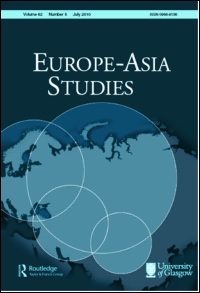Ideological Recycling of the Socialist Legacy. Reading Townscapes of Minsk and Astana
Posted on 8 September, 2017 inArea Studies Nation Building Post Socialism Post-Soviet Cities Socialism
 Nelly Bekus’ article Ideological Recycling of the Socialist Legacy. Reading Townscapes of Minsk and Astana has recently been published in the Journal for Europe-Asia Studies, Volume 69, Issue 5, July 2017.
Nelly Bekus’ article Ideological Recycling of the Socialist Legacy. Reading Townscapes of Minsk and Astana has recently been published in the Journal for Europe-Asia Studies, Volume 69, Issue 5, July 2017.
Her article addresses the ways in which the systemic transformation of the former Soviet republics has been reflected in urban development in two capital cities, Minsk (Belarus) and Astana (Kazakhstan). Changes taking place in these capitals have been analysed through the prism of an ideological recycling of the socialist legacy, a concept that permits exploration of which aspects of the socialist legacy have been jettisoned and which retained, in the process of formation of a capital. The article explores the nationalising strategies adopted by Belarus and Kazakhstan and reified by various practices, including those involving the recasting of cities. These strategies, however, are analysed not as inventions of post-Soviet regimes, but as forms of structural continuity.
→ Ideological Recycling of the Socialist Legacy. Reading Townscapes of Minsk and Astana






